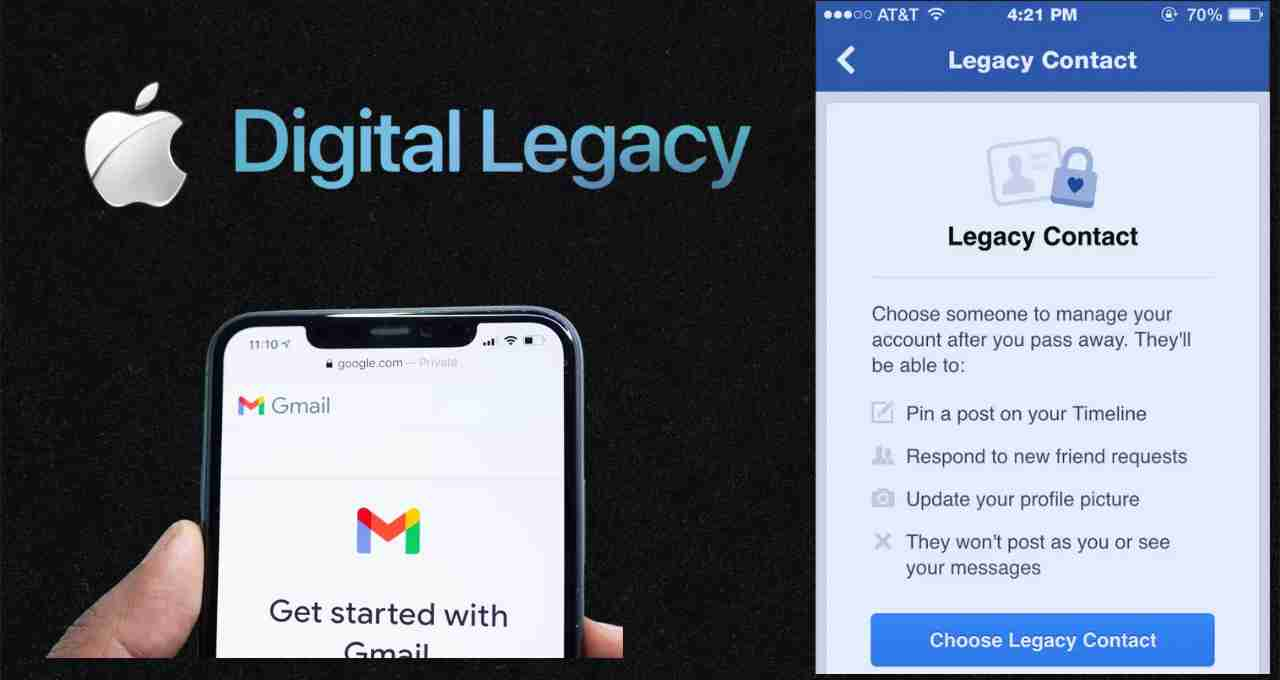In today's digital age, a significant part of our lives resides online. We are not only active on social media but also store crucial information, memories, documents, and personal data on the internet. However, have you ever considered the fate of your digital data after your death? What happens to your online presence, social media accounts, cloud-stored files, cryptocurrency wallets, and other digital assets? This article will explain what digital legacy is, why it's crucial today, and the steps you can take to protect your digital assets.
What is Digital Legacy?
Digital legacy refers to your online presence and assets that you leave behind. This includes your social media profiles, email accounts, digital photos, videos, online banking, and cryptocurrency wallets. It can be broadly categorized into two main parts:
Digital Assets – These encompass items with monetary value, such as website domains, online stores, digital copyrights, cryptocurrency, and monetized social media accounts.
Digital Presence – This holds emotional and personal significance, including your photos, videos, posts on social media, emails, chat history, memories stored in cloud storage, and even data from health tracker apps.
What Happens to These Digital Accounts After Death?
When a person dies, their digital accounts remain in the same state as if they were still alive. Companies like Facebook, Google, Twitter, and Apple have recently started offering options to switch these profiles to a "memorial" mode or grant limited access to a trusted individual.

Examples:
- Google's Inactive Account Manager allows you to decide what happens to your Google services (like Gmail, Drive, Photos, etc.) if your account remains inactive for a certain period.
- Facebook lets you choose a Legacy Contact who can memorialize or delete your account.
- Apple's Digital Legacy feature allows you to designate an heir to your Apple ID data.
How to Plan Your Digital Legacy?
- List all your digital accounts: First, identify all your online accounts and digital assets. Note their usernames and passwords.
- Categorize information: Decide which digital information you want shared with your family, which should be deleted, and which should form part of your legacy.
- Use a password manager: Use a secure password manager to keep all your login credentials safe. This also facilitates sharing passwords if needed.
- Appoint a digital executor: Designate a trusted individual as your digital executor to manage your digital assets after your death. Seeking legal advice is helpful.
- Utilize company-provided tools: Large tech companies like Google, Facebook, and Apple offer features like 'Digital Legacy' or 'Inactive Account Manager'. These tools help you determine what happens to your digital assets after your death.
What Happens Without a Digital Legacy Plan?
Without a digital legacy plan, accessing your accounts and data can be difficult for your family. Most companies only grant data access or delete accounts after confirming the account holder's death. This often requires a death certificate, legal documents, or a court order.

Without a clear plan, family members struggle to find passwords or recover accounts. This increases the risk of data loss and causes emotional and legal distress.
Tips for Securing Your Digital Legacy
- Include digital data in your will: Detail your digital assets in your will.
- Keep online data backups: Create offline backups of important digital files and memories.
- Enable Two-factor Authentication (2FA): Use 2FA to enhance account security.
- Regular updates and reviews: Periodically review your digital asset list and security settings.
- Authorize your digital executor: Legally authorize your digital executor to access your accounts.
The Increasing Importance of Digital Legacy in the Future
As our lives become increasingly digital, the importance of digital legacy grows. Securing our presence, identity, memories, and assets in the virtual world presents a new challenge. Planning for digital legacy is no longer just a technical necessity but a social and emotional responsibility.
We are cautious about our physical possessions, but often overlook our digital assets – which have become equally valuable in today's world. It's time to take digital legacy seriously. To ensure our memories, efforts, and digital identities remain secure even after we are gone, creating a robust plan today is not just technologically prudent, but also an emotional responsibility.














